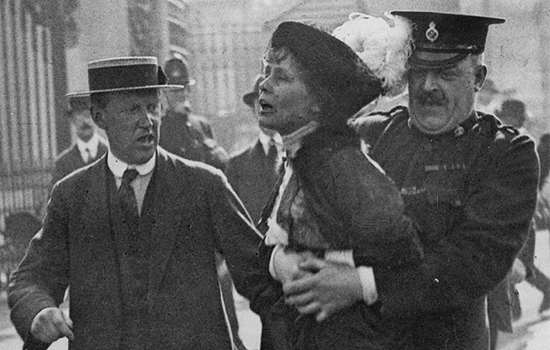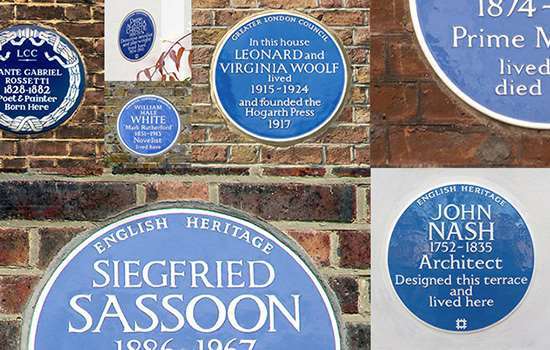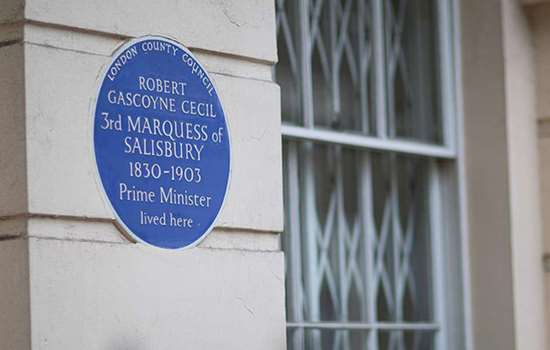CARTER, Angela (1940-1992)
Plaque erected in 2019 by English Heritage at 107 The Chase, Clapham, London, SW4 0NR, London Borough of Lambeth
All images © English Heritage
Profession
Writer
Category
Journalism and Publishing, Literature
Inscription
ANGELA CARTER 1940-1992 Writer lived here from 1976
Material
Ceramic
Angela Carter was an influential British novelist, essayist and short story writer. She published her most famous works, including The Bloody Chamber (1979), Nights at the Circus (1984) and Wise Children (1991), while living at 107 The Chase in Clapham, where she is now commemorated with a blue plaque.
WRITING LIFE
Angela Olive Stalker grew up in south London, but developed her writing while living in Bristol with her husband Paul Carter in the 1960s. She studied Middle English Literature under the popular medievalist Basil Cottle at the University of Bristol – an intentional move away from the realist style that was popular in literature at the time. Carter’s first novel was published in 1966, but it was her second – The Magic Toyshop (1967) – that established her reputation as a writer. The novel featured many of the motifs that she would explore throughout her career: emergent sexuality, the dark side of human relationships, and a relish for the vaudevillian.
After the end of her marriage in the late 1960s she lived in Tokyo for two years in 1970–2, and wrote about Japan in her regular column for the New Society. Her fiction output during these years was prolific, and included Heroes and Villains (1969), a post-apocalyptic tale set in an imaginary future, Love (1970), a satire on the 1960s, and The Infernal Desire Machines of Doctor Hoffman, billed by the publishers as an ‘erotic surrealist epic’. Carter later said she was writing a ‘social realism of the unconscious’.
Carter was an outspoken feminist thinker, and continued to develop her ideas in the novel The Passion of New Eve (1977), the polemic The Sadeian Woman: An Exercise in Cultural History (1979) and The Bloody Chamber and Other Stories (1979), which rewrote classic fairy tales from a feminist perspective. Carter’s views on the ’rights of free sexuality for women’ in The Sadeian Woman upset many feminists, but she was unrepentant and contributed articles to men’s soft-porn magazines at the same time as writing for the iconic feminist magazine, Spare Rib.
Her only novel of the 1980s, Nights at the Circus, was published in 1984, and in 1991 the Women’s Prize for Fiction was set up in response to Carter’s final novel, Wise Children, being omitted from an all-male shortlist for the Booker Prize. Carter’s work has since influenced writers such as Terry Pratchett, Sarah Waters and Jeanette Winterson.
107 THE CHASE
Angela Carter moved into 107 The Chase, Clapham, with her new partner Mark Pearce in the summer of 1976. She bought the house earlier in the year with her friend Christine Downton. Carter took the top two floors and Downton the lower storeys and garden, until Carter bought out Downton’s share in 1980.
Soon after she moved in Carter wrote of how ‘you can’t walk home from the tube, these days, without seeing somebody moving their Swiss-cheese plants into a white-painted room’. And yet, she said,
– at the same time – down the road, an old lady in the pub removes her teeth in order to sing ‘Some of these days’ with passion and vibrancy, to tumultuous applause. Even the Rastas in the front bar applaud her.
Guests at the house included her friends and colleagues from the world of publishing, and fellow writers JG Ballard, Ian McEwan and Salman Rushdie. ‘She was tremendous fun … enormously amusing, witty, good company’, Ballard remembered. At the kitchen table Carter wrote the script with Neil Jordan for The Company of Wolves, a film adaptation of her short story of the same name, and also gave the young writer Kazuo Ishiguro his tutorials there.
Angela Carter died at home of cancer on 16 February 1992. She had lived and worked at 107 The Chase for almost 16 years.


